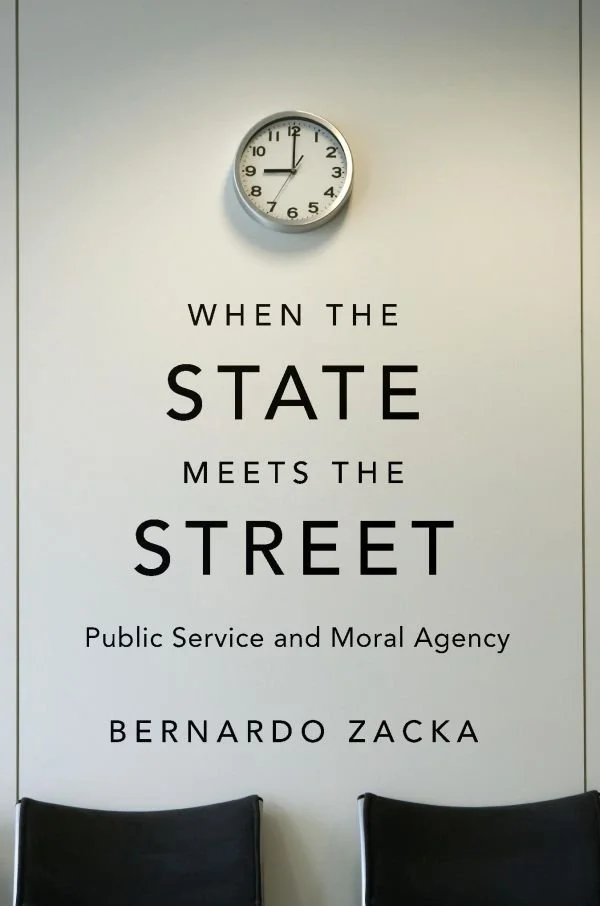Grain of Sand Award Winner 2020: Hanna Fenichel Pitkin
From The Concept of Representation (1967) to The Attack of the Blob (1998), Hanna Pitkin’s work has elucidated the multiple meanings of concepts and the implications ordinary language use analysis holds for revealing how we think and act in the world. Inspired in large part by the writings of Ludwig Wittgenstein and Hannah Arendt, Pitkin’s fine-grained analyses of terms such as representation, justice, judgment, and membership have operated, as the sand metaphor suggests, as an irritant within the academy, perturbing conventional modes of thinking— challenging us all to unsettle existing assumptions, as she did, and to view our tacit knowledge critically.
Charles Taylor Book Award Honorable Mention 2020: Nicholas Rush Smith, for Contradictions of Democracy: Vigilantism and Rights in Post-Apartheid South Africa
South Africa is often heralded as a beacon of successful transition into democracy; yet its citizens are riddled with anxiety and insecurity, often taking to vigilantism in order to protect themselves including from the state itself. Why would citizens feel this way, especially given the fact that South Africa has a constitution with one of the most robust set of rights’ protections in the world?
Charles Taylor Book Award Winner 2020: Lisa Wedeen, for Authoritarian Apprehensions: Ideology, Judgment, and Mourning in Syria
Wedeen’s ethnography focuses on the case of Bashar Al Asad’s Syria, capturing the excitement and anxiety of the revolutionary aspirations that animated the uprising of 2011 followed by the complex trajectory of resistance and complacency that developed once a brutal civil war took hold.
Lee Ann Fujii Award Winner 2019: Jana Krause, for Resilient Communities: Non-Violence and Civilian Agency in Communal War
In this meticulously researched and theoretically sophisticated work, Professor Jana Krause explores key factors that contribute to the escalation of communal violence to the threshold of civil war and contrasts them with forces that succeed in preventing such escalation.
Charles Taylor Book Award Honorable Mention 2019: Timothy Pachirat, for Among Wolves: Ethnography and the Immersive Study of Power
In this dramatic reimagining of discussion of ethnographic methods as a conversation among a cast of ethnographers brought together for an ethnographic trial, Among Wolves transcends the limitations of writing a methods book in both content and form.
Charles Taylor Book Award Honorable Mention 2019: Lee Ann Fujii, for Interviewing in Social Science Research: A Relational Approach
Fujii debunks common myths about interviews and makes us see constraints, limitations, mistakes and the resistance of subjects as “gifts” that can enhance one’s research, instead of liabilities that one must accommodate or patch over.
Charles Taylor Book Award Winner 2019: Matthew Longo, for The Politics of Borders: Sovereignty, Security, and the Citizen after 9/11
Through his detailed empirical “sociological portrait” of bordering practices on the US borders with Mexico and Canada, Longo successfully challenges notions of borders as “thin and vertical” lines between sovereign territories.
Grain of Sand Award Winner 2018: Lee Ann Fujii
Dr. Lee Ann Fujii passed away unexpectedly in March 2018, and if she would cringe at anything, it would be an award citation that begins with a long and detailed summary of her (vast) research accomplishments. As a gifted presenter who helped so many of us craft talks and manuscripts, Lee Ann always encouraged us to “Start with a good story!” and “Get people interested!” Taking her advice, this citation begins with a number of stories, because it is impossible to choose only one about someone as vibrant and brilliant as Lee Ann.
Charles Taylor Book Award Honorable Mention 2018: Stefanie Fishel, for The Microbial State: Global Thriving and the Global State
This concise, sophisticated book presents an imaginative reinterpretation of the body politic in international relations theory. It engages with new materialism literature and interpretive methodology by displacing realist international relations metaphors that are rooted in Eurocentric conceptions of power.
Charles Taylor Book Award Honorable Mention 2018: Shiri Pasternak, for Grounded Authority: The Algonquins of Barriere Lake Against the State
Grounded Authority is well poised to engage in broader debates about Indigenous resistance across settler colonies. Pasternak foregrounds jurisdiction and disentangles it from sovereignty while visualizing jurisdiction as a density of lines against orthodox notions of hierarchy and scale.
Charles Taylor Book Award Winner 2018: Bernardo Zacka, for When the State Meets the Street: Public Service and Moral Agency
When the State Meets the Street is well written and provides a rich, detailed and nuanced ethnography of the state by focusing on street-level bureaucracy at the frontlines of public service. The book builds from findings and an ethnographic sensibility to inform political theorizing about bureaucratic polities.
Grain of Sand Award Winners 2017: Peregrine Schwartz-Shea and Dvora Yanow
There can be no more deserving winners of the Grain of Sand Award than Peri Schwartz-Shea and Dvora Yanow. Everything they have done and accomplished fits the spirit of the award. Through broad, sustained, and no doubt lonely effort over the last fifteen years, they have worked to build a vibrant, eclectic, and self-sustaining community of interpretive scholars.
Charles Taylor Book Award Winner 2017: Sarah Marie Wiebe, for Everyday Exposure: Indigenous Mobilization and Environmental Justice in Canada’s Chemical Valley
Everyday Exposure is an interesting, surprising and outstanding text offering an exceptional interpretive analysis that takes the questions of environmental justice for the 850 Anishinabek people in the Aamjiwnaang Reserve, or Sarnia Reserve 45, in Canada's so-called Chemical Valley and makes it “home”.
Grain of Sand Award Winner 2016: Mary Hawkesworth
Some time in the early 1990s, in discussing the possible creation of a journal in what was coming to be called interpretive policy analysis, one of that field’s leading scholars observed about Mary Hawkesworth’s 1988 Theoretical Issues in Policy Analysis, that her having written it meant that the rest of us didn’t have to.
Charles Taylor Book Award Winner 2016: Daniel Kato, for Liberalizing Lynching: Building a New Racialized State
Kato’s study sets out to resolve a mystery. How could the practice of public lynching co-exist with liberal democracy in the U.S.?















